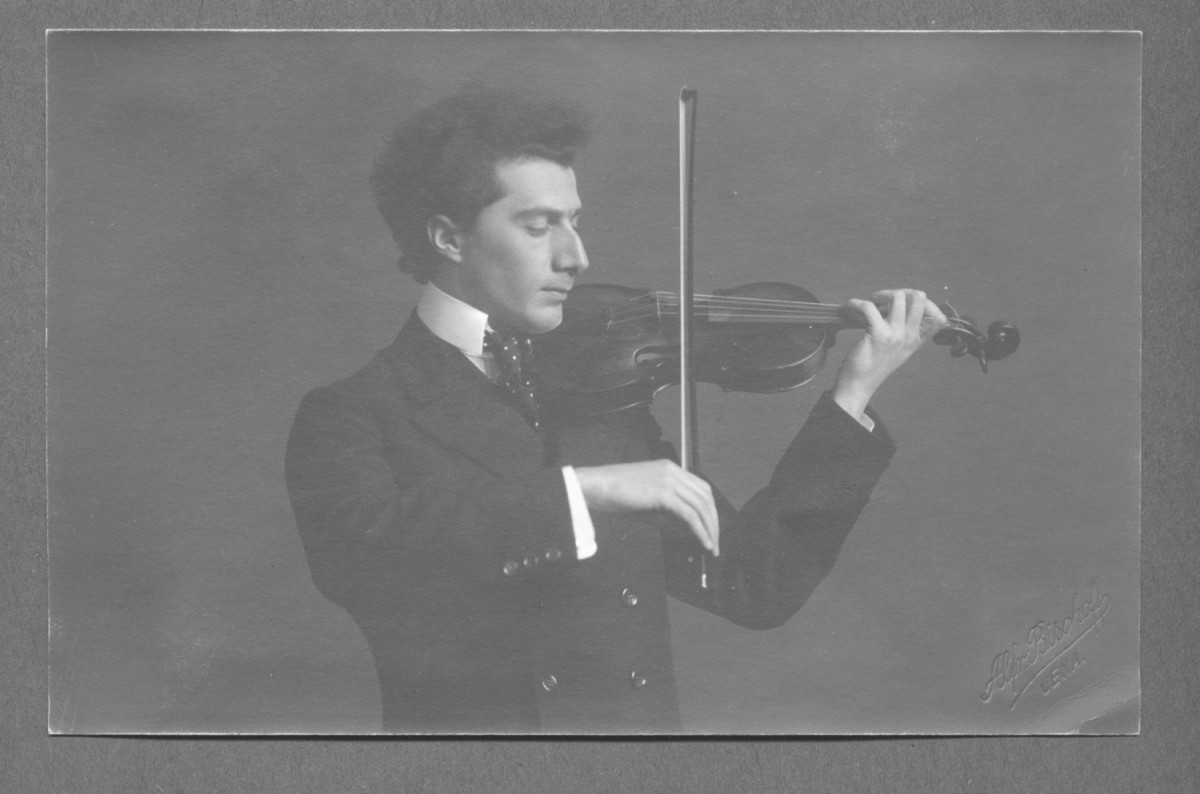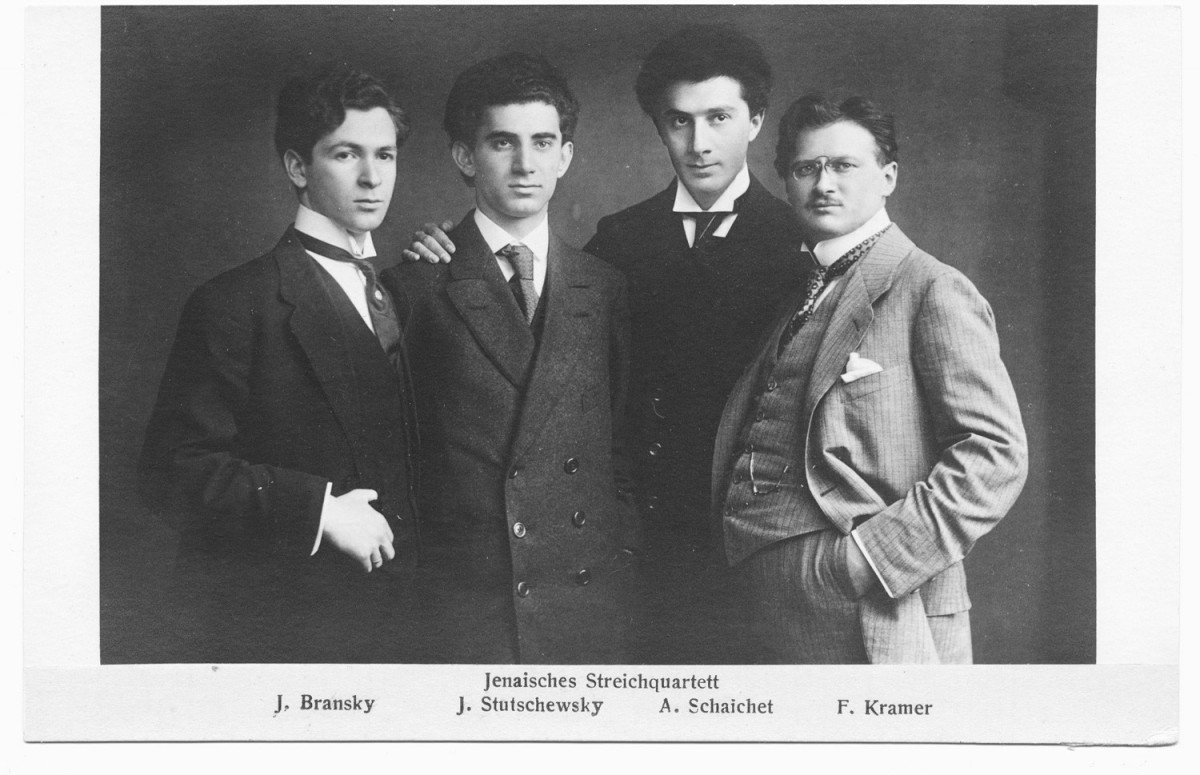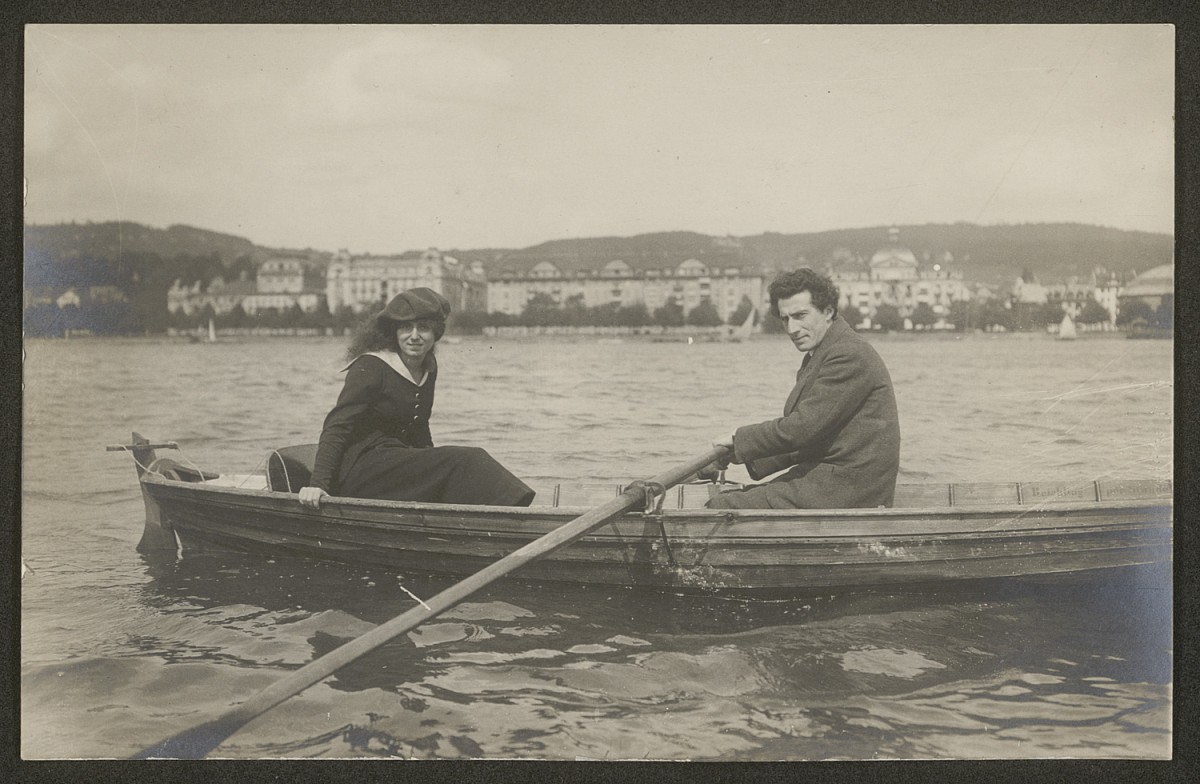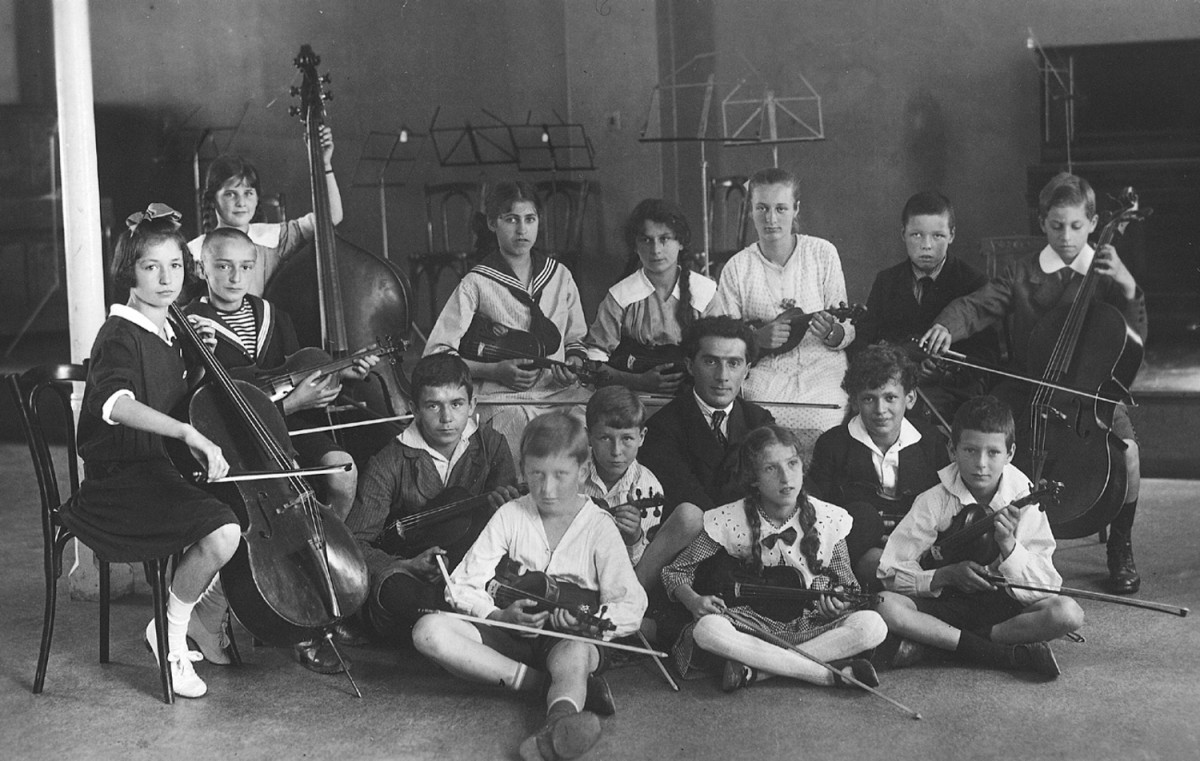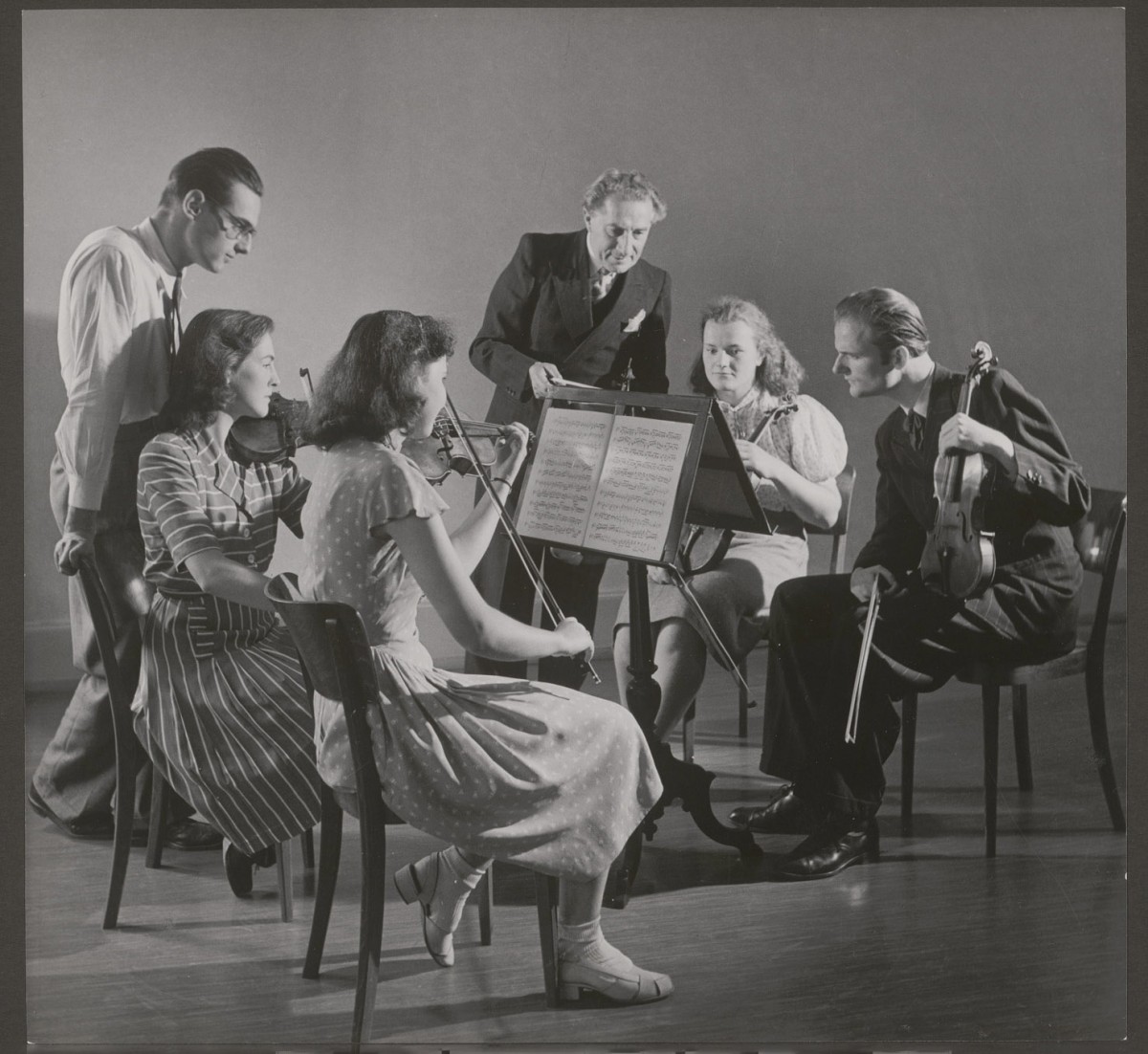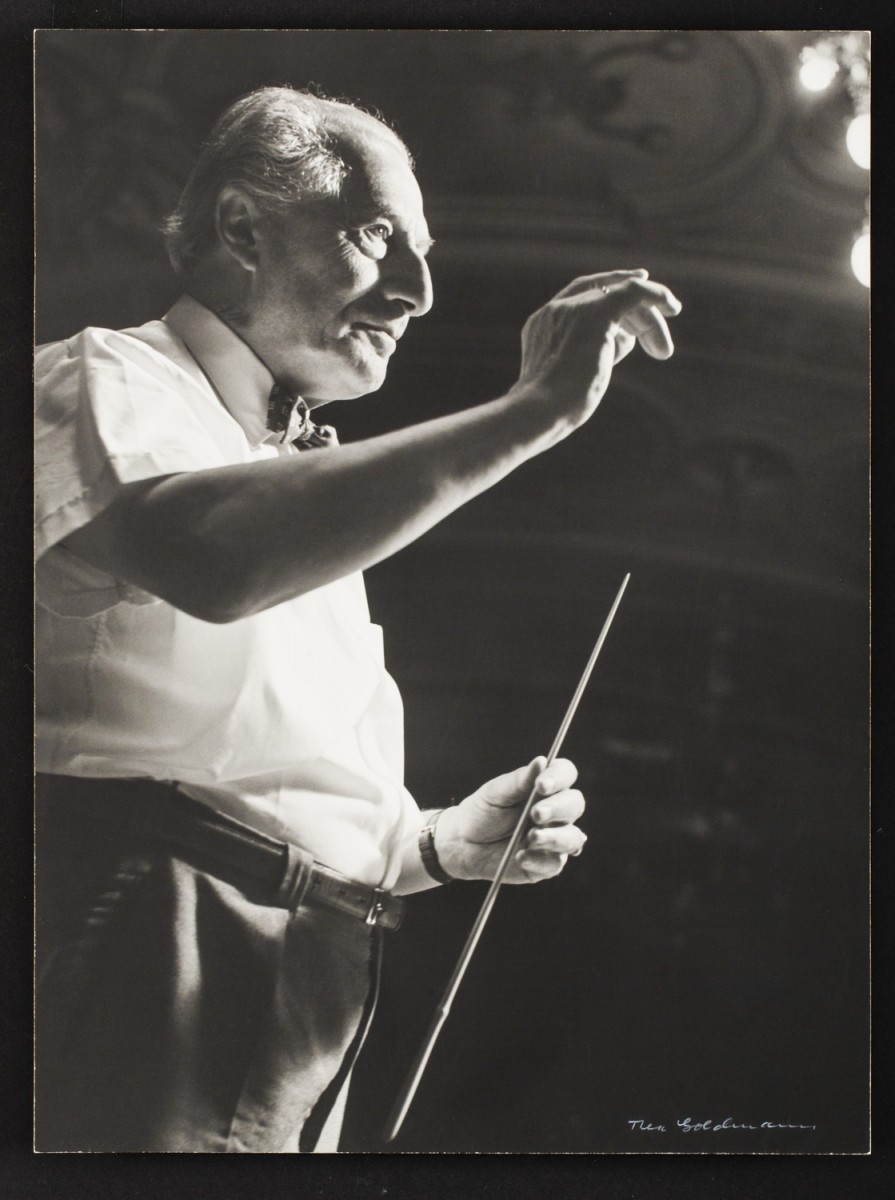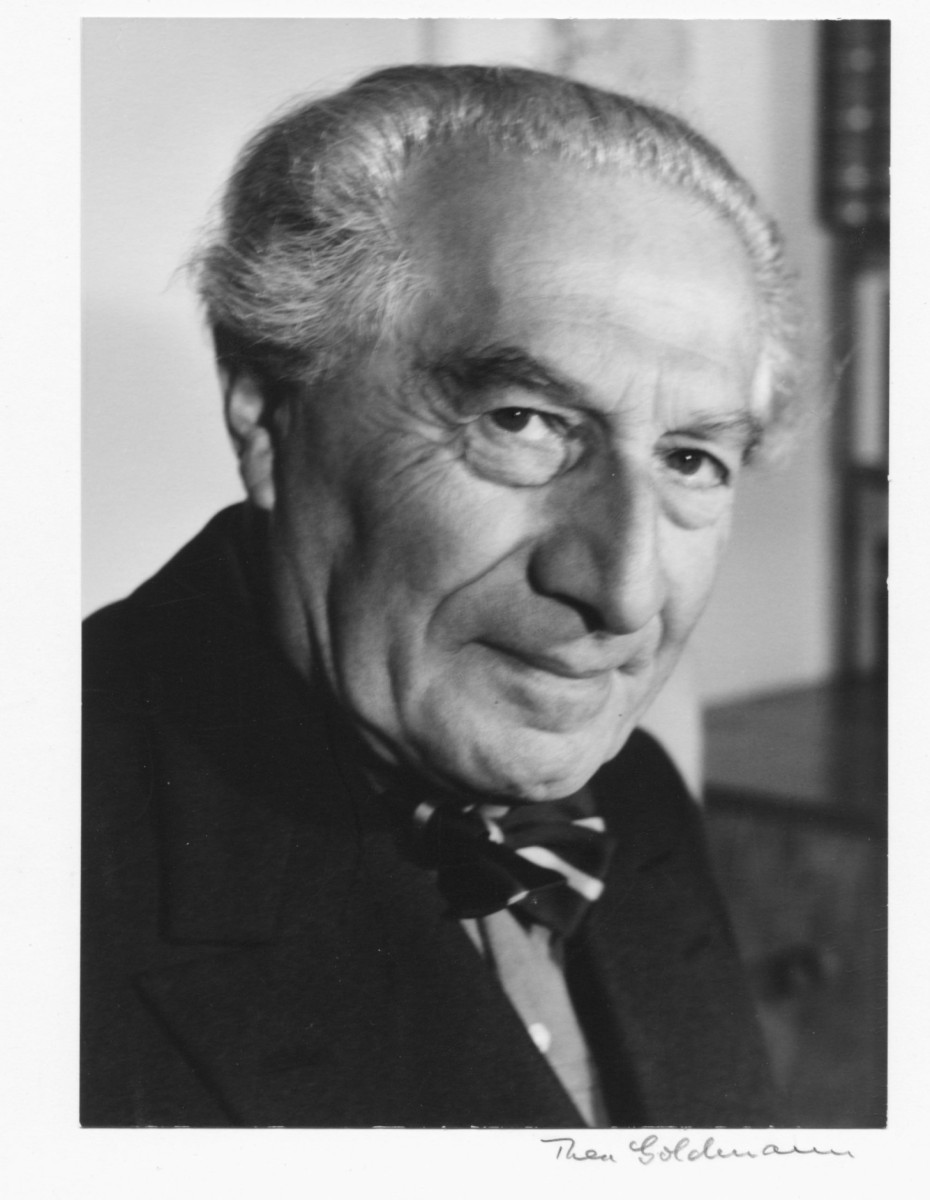Alexander Schaichet (1887 - 1964)
Origin and musical education
Alexander Schaichet was born on 23 June 1887 in Nikolayev in what is now the Ukraine. In 1903 he entered violin instruction under Alexander Fiedemann at the Academy of Music in Odessa. In 1906 he transferred to the Royal Conservatory in Leipzig. He completed this training in 1911 and was appointed to Jena in the same year. There he became first concertmaster of the academic concerts and vice-conductor of the Collegium Musicum, directed by Fritz Stein. During this time he was a member of the Jena String Quartet together with Joachim Bransky, Joachim Stutschewsky, and Fritz Kramer. He also regularly gave concerts with the Meininger Trio founded by Max Reger.
Arrival and marriage in Switzerland
While vacationing in Switzerland with his friend Joachim Stutschewsky, Alexander Schaichet was faced with the outbreak of World War I in August 1914. Due to this dramatic change of circumstance, he was forced to stay in Switzerland for the duration of the war and would remain there for the rest of his life.
In 1919 he married Hungarian pianist Irma Löwinger, who came to Zurich in 1917 on a one-year scholarship to study with Ferruccio Busoni. Their marriage bore them three children, Mirjam, Peter, and Vera. After being denied twice, Alexander Schaichet and his family were finally granted Swiss citizenship in 1927.
Musical legacy
In the beginning, Alexander Schaichet earned his living as a coffee house musician together with his friend Joachim Stutschewsky. However, he soon began offering private violin and viola lessons. In 1917 he founded a children's string orchestra and in 1920 the first Chamber Orchestra of Switzerland. With this orchestra he wanted to "bring to the ear works that were rarely heard, never performed or were particularly valuable", as he explained at the constitutive assembly. Alexander Schaichet was a passionate promoter of contemporary Swiss classical music. He often gave joint concerts with his wife Irma Schaichet. In 1940 he was appointed head of violin instruction at the Musikakademie Zürich, where he founded and directed the Academy Orchestra. Alexander Schaichet taught at the Musikakademie until his death in 1964 and, as a dedicated teacher, left his mark on an entire generation of musicians.
Commitment to music and culture
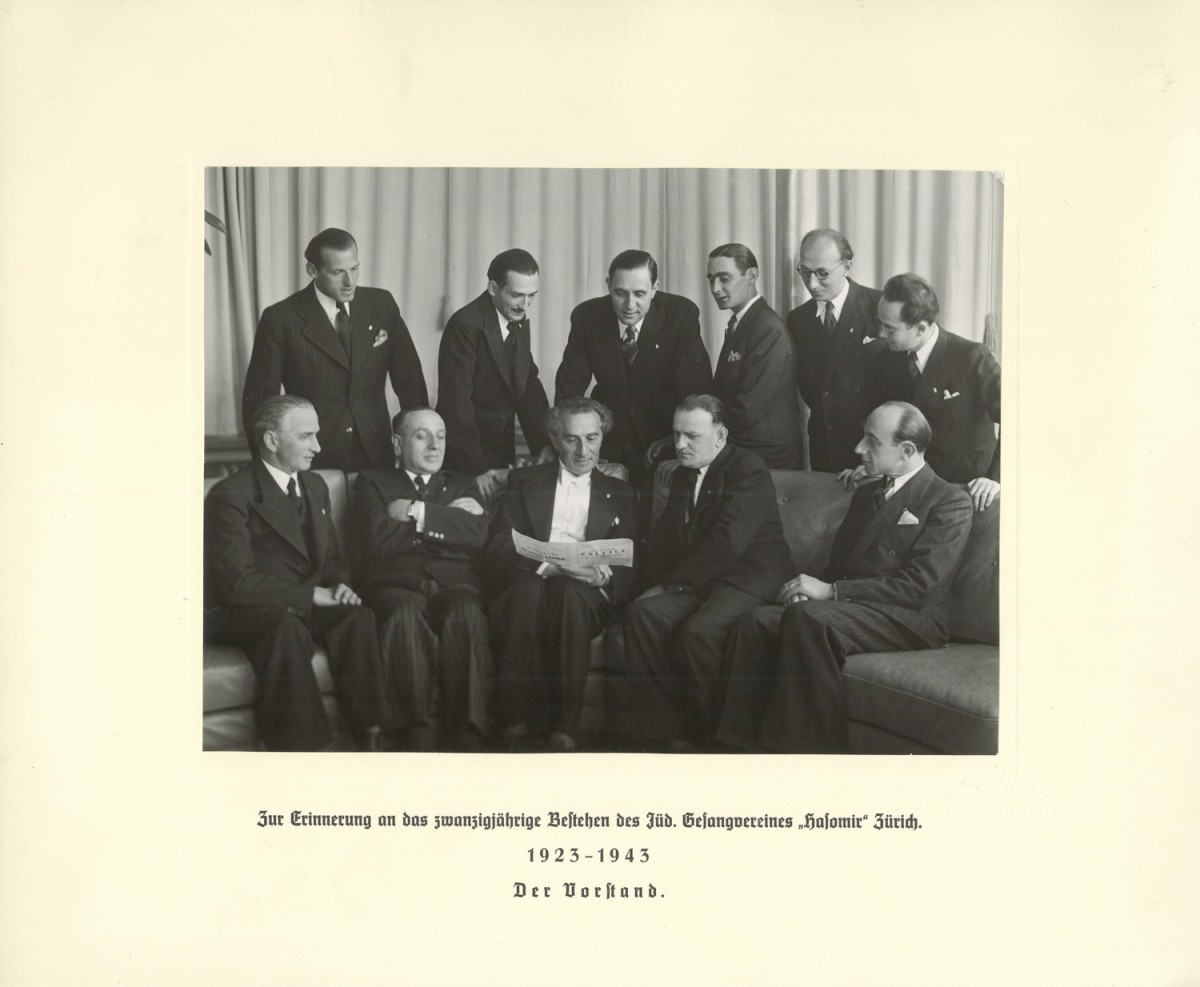
In 1923 Alexander Schaichet was a founding and board member of the International Society for New Music (IGNM ). In 1935 he co-founded Pro Musica, an association for the performance of both contemporary and unknown early classical compositions in chamber music. From 1935 to 1952 Alexander Schaichet directed the Jewish Choral Society "Hasomir" and, from its inception in 1936, the Jewish Ladies Choir Zurich. In 1941 he was a founding member and the first president of the Omanut Association for the Promotion of Jewish Art in Switzerland. In 1942 he resigned from the presidency due to heavy workload. Throughout his life, he remained a member of the Omanut board of directors. He was responsible for music and occasionally filled in as president.
Honors and awards
In 1953 Alexander Schaichet, together with composer Arthur Honegger, received an honorary distinction from the city of Zurich for extraordinary support of a generation of young Swiss musicians. In 1962, the president of the city council, Emil Landolt, presented him with the Hans Georg Naegeli Medal in gratitude and recognition for his contribution to the promotion of musical culture in the city of Zurich.
Alexander Schaichet died in Zurich on August 19, 1964, at the age of 78. In his obituary, the NZZ stated that Alexander Schaichet had paved the way for public recognition for many Swiss composers and many Swiss soloists. It also underlined the fact that the Zurich Music Academy owed a large part of its reputation as a musical educational institution to the high and far-reaching esteem of its prominent violin teacher Alexander Schaichet.
